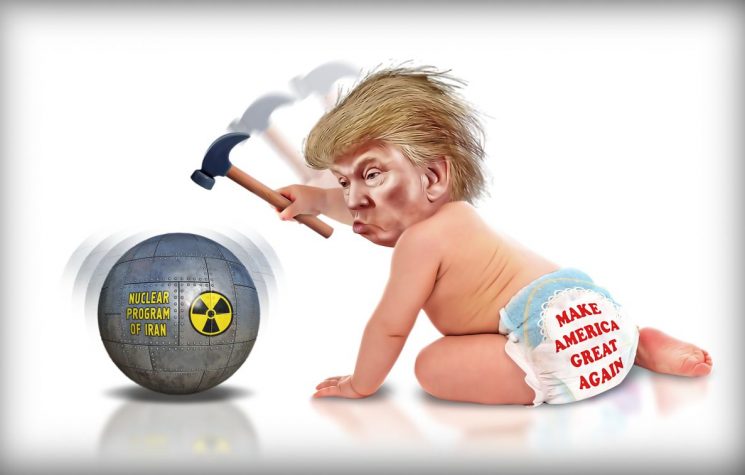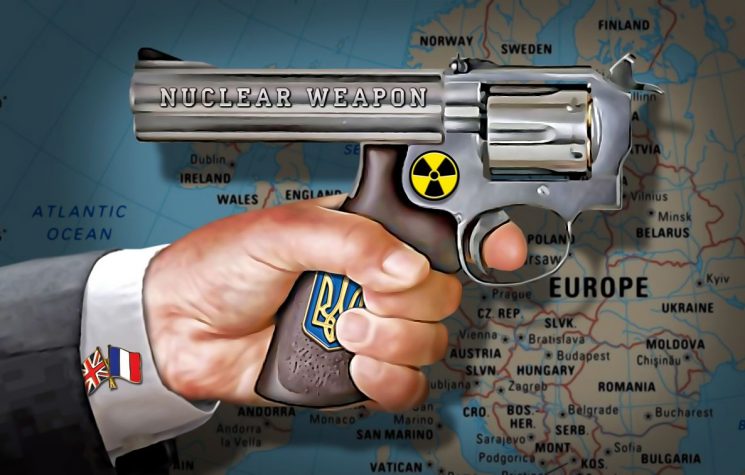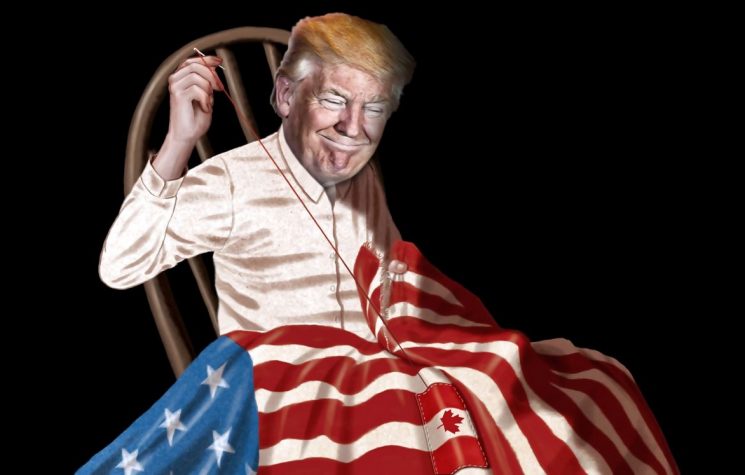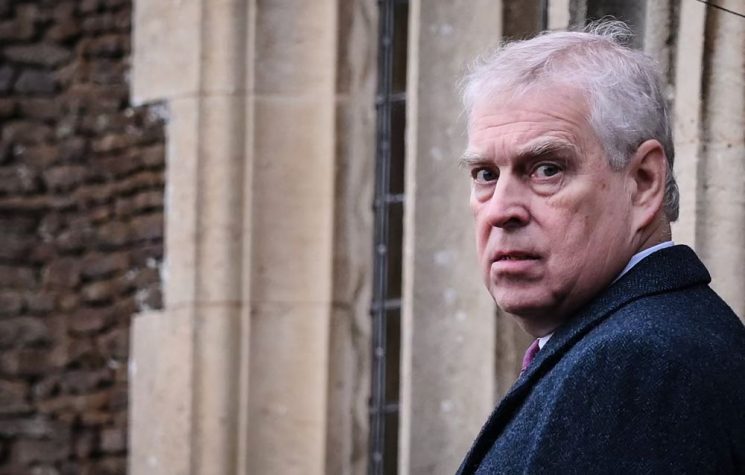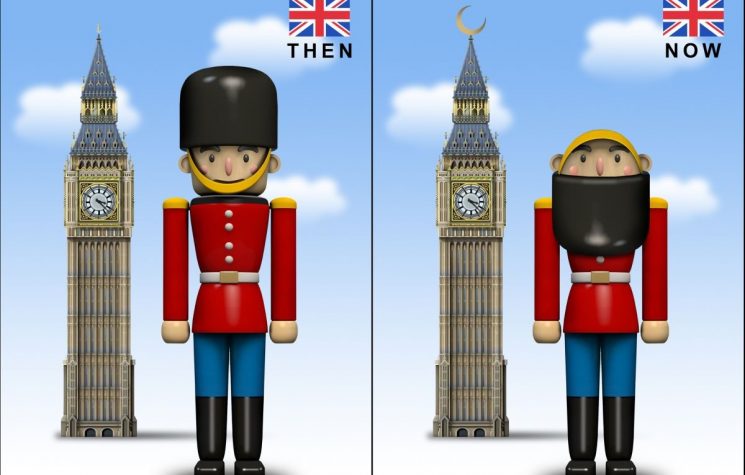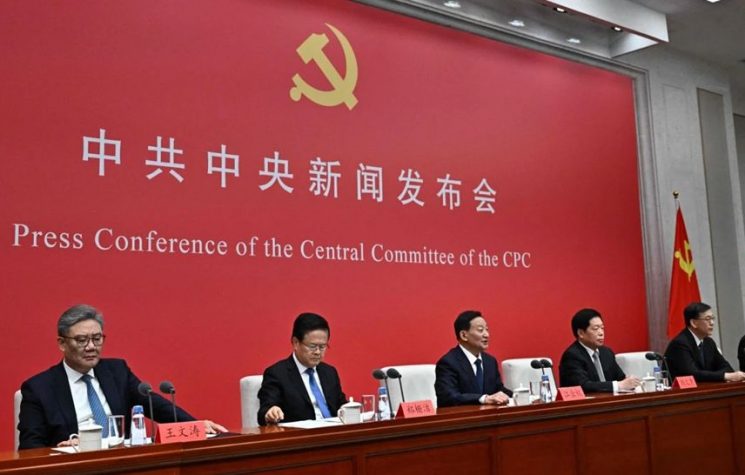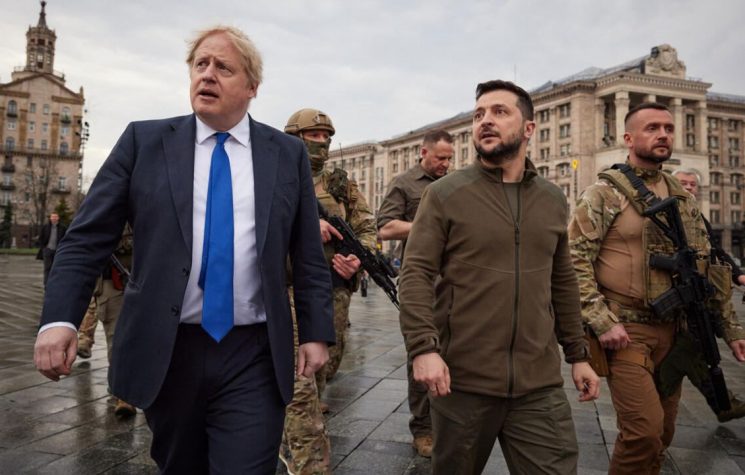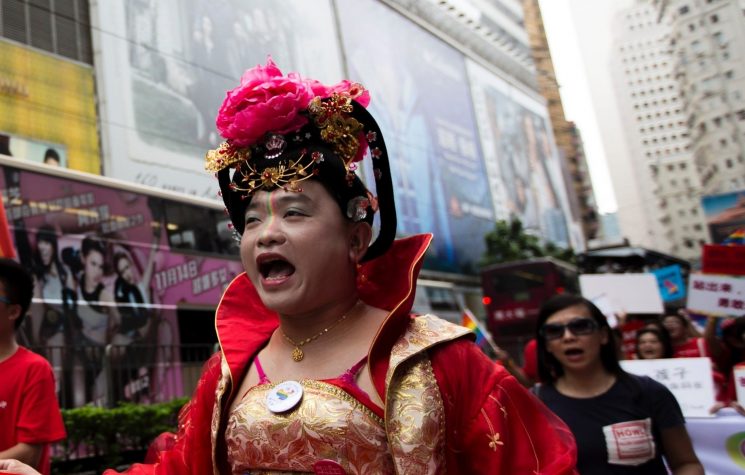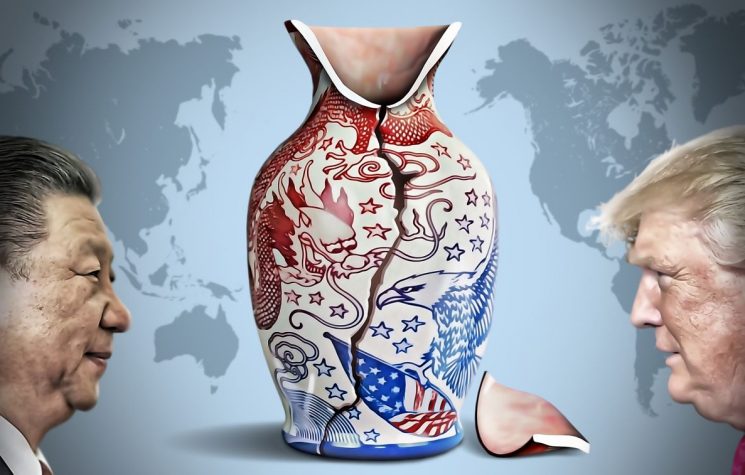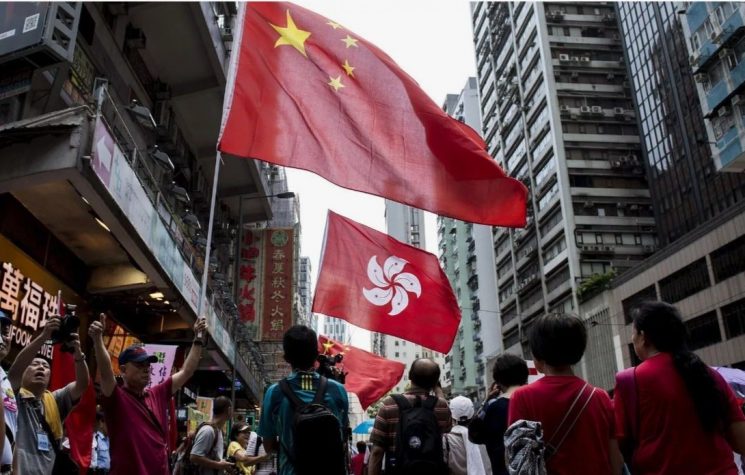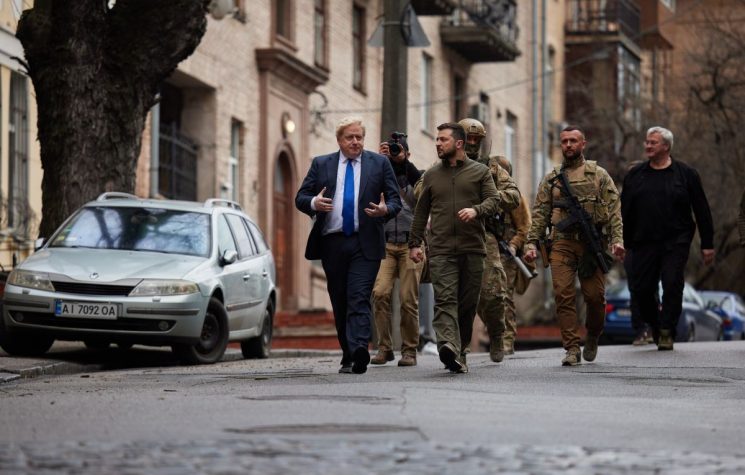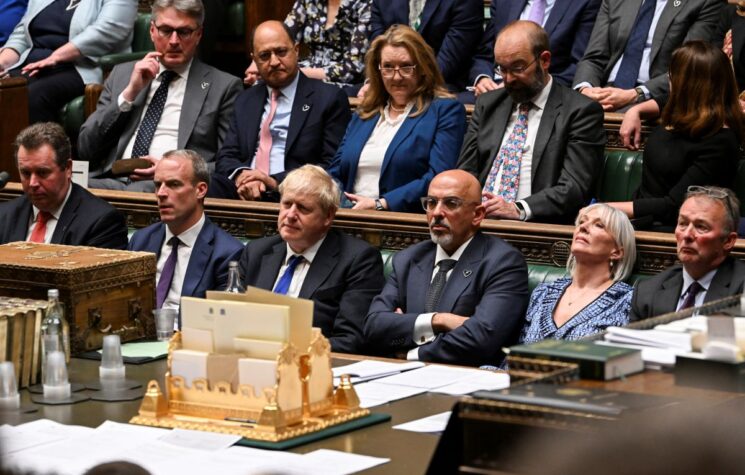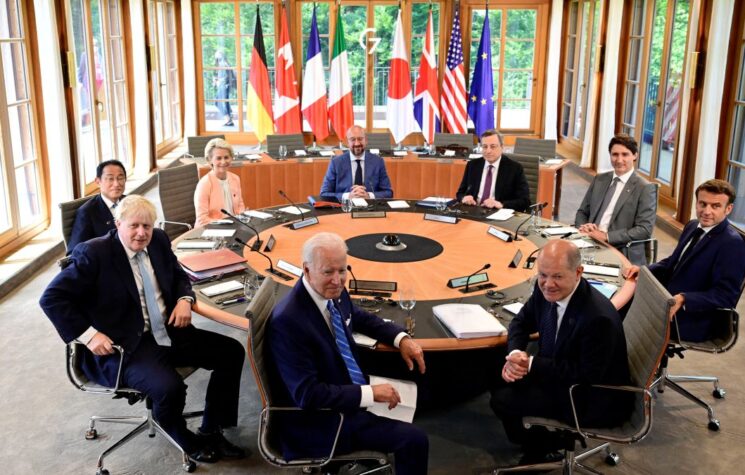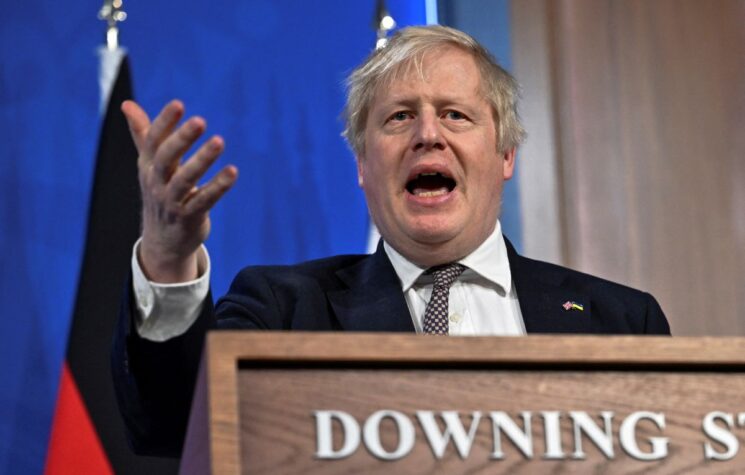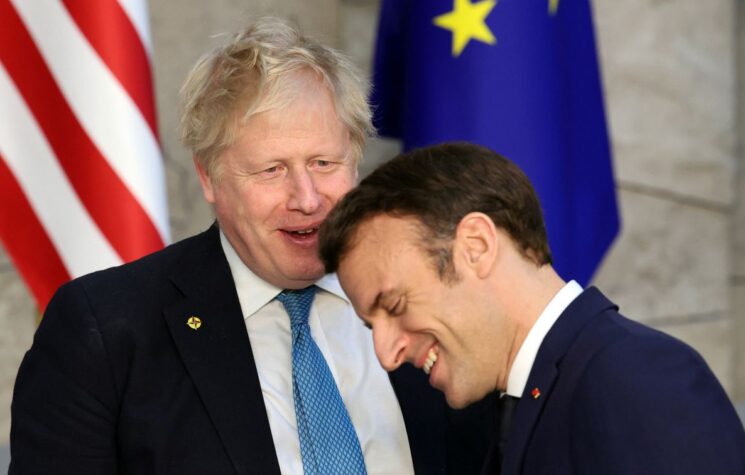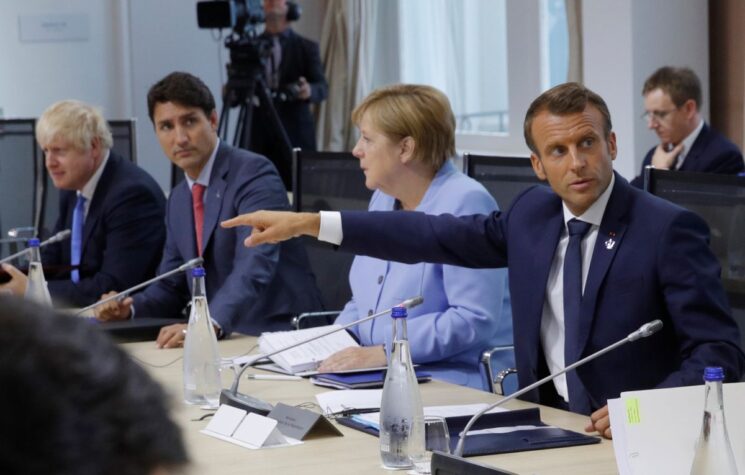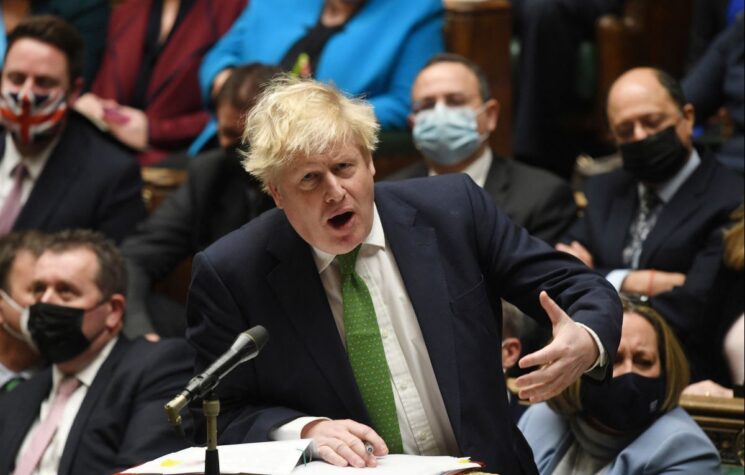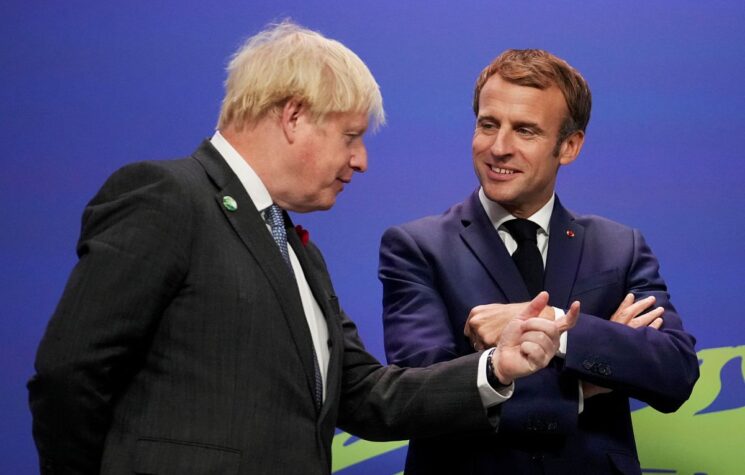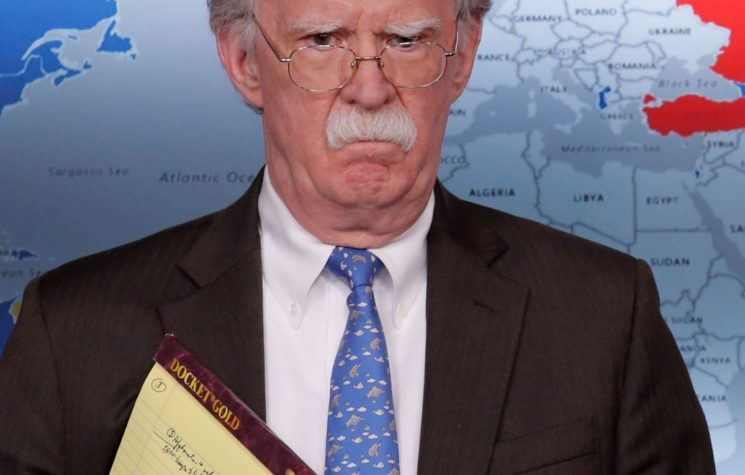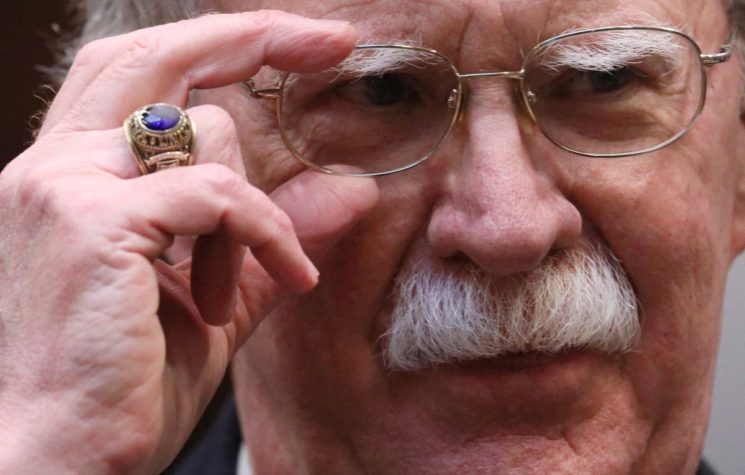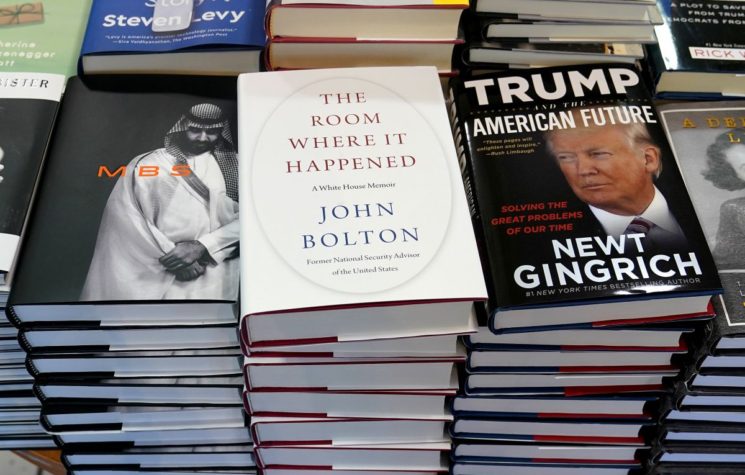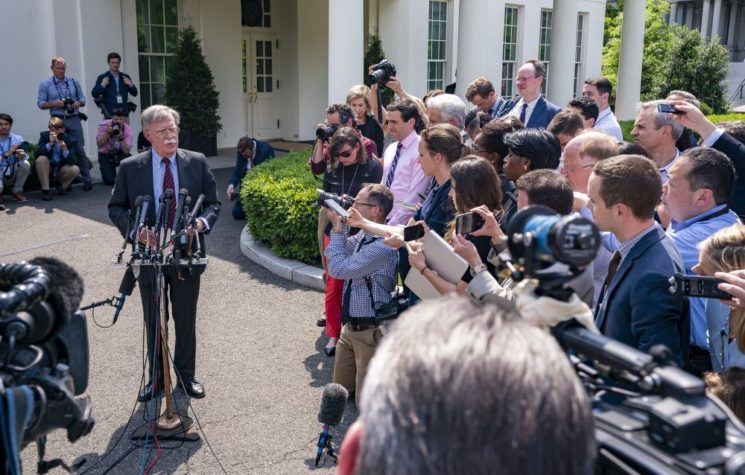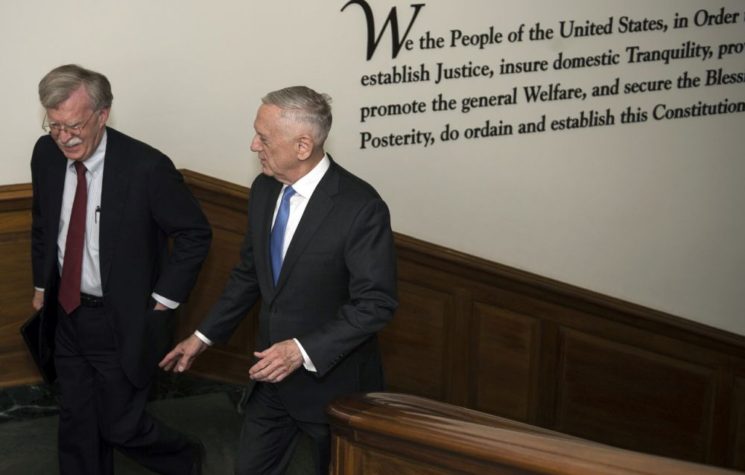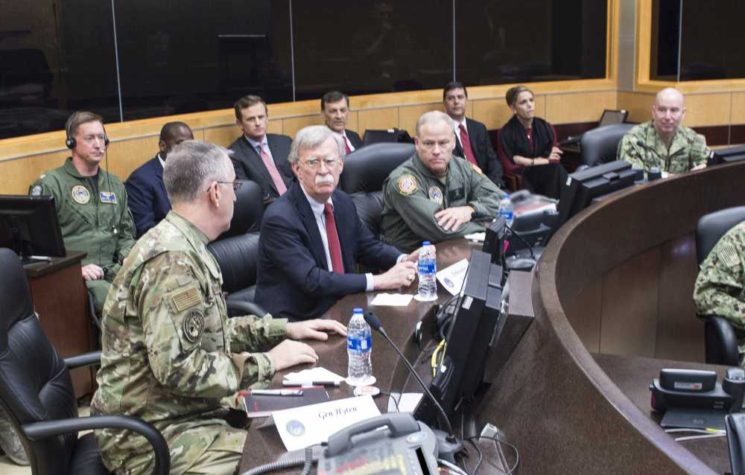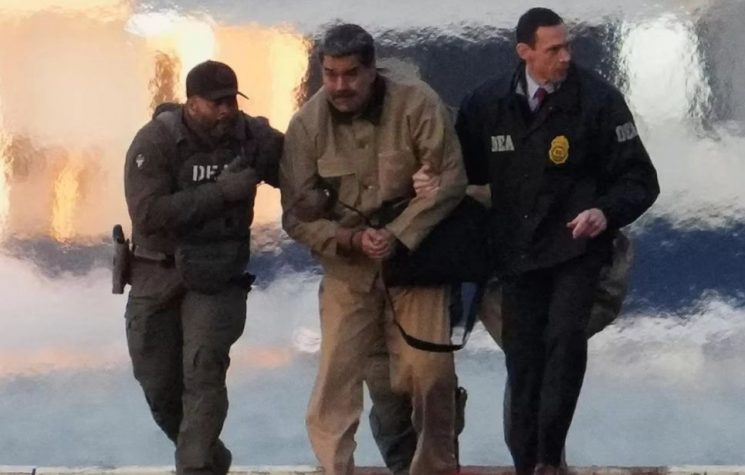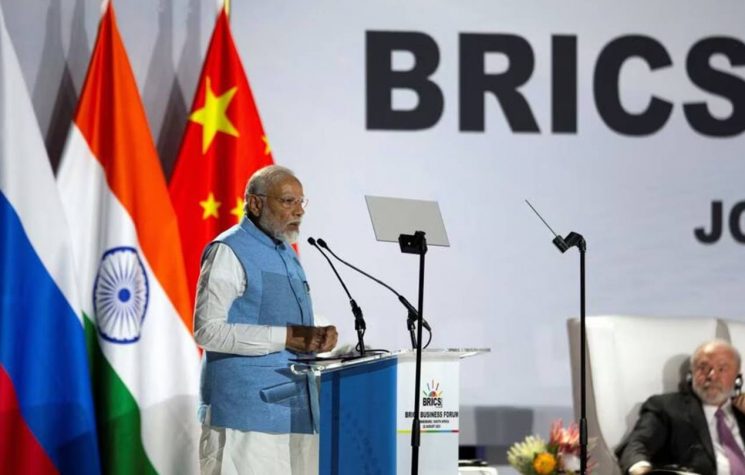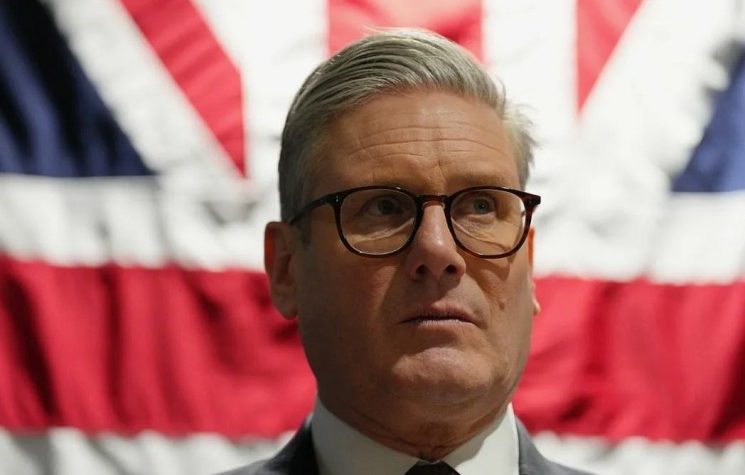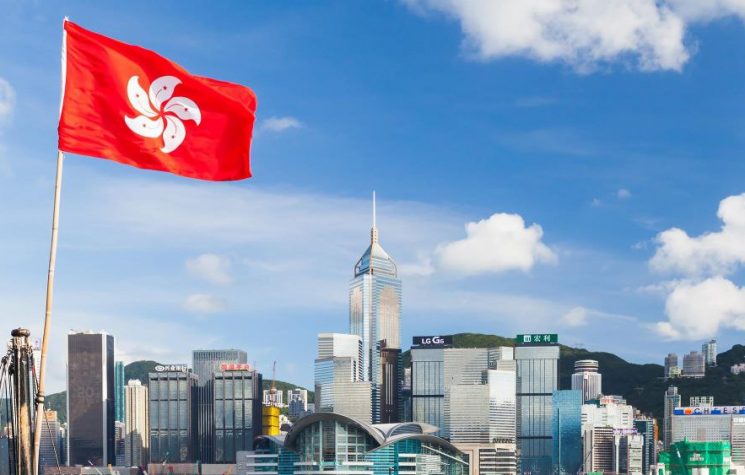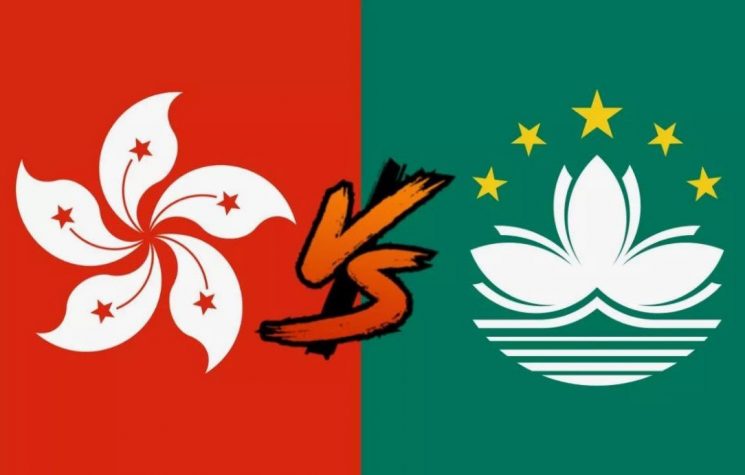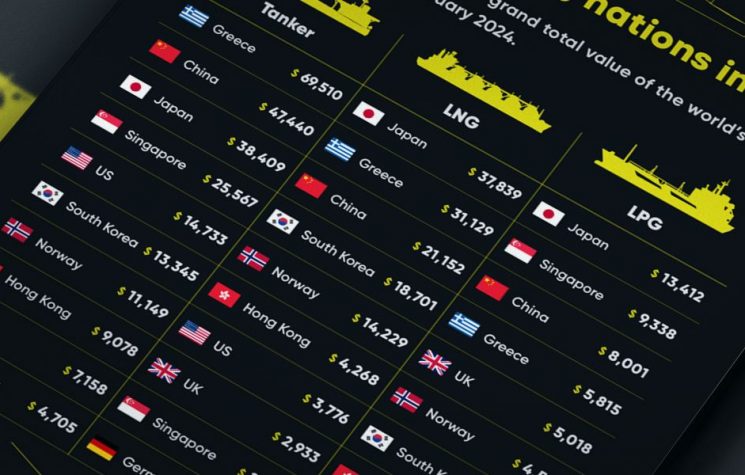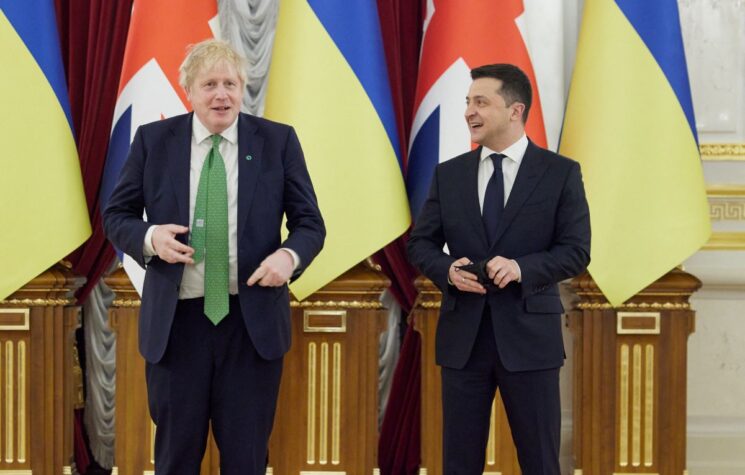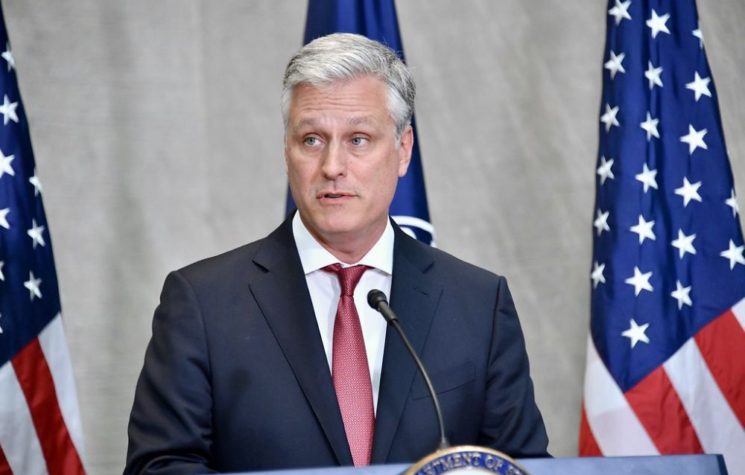Since Boris Johnson took over as Britain’s new prime minister three weeks ago he has been holding intensive phone calls with US President Donald Trump, according to media reports. There is a buzz that the much-vaunted “special relationship” between the US and Britain is finding new ardor.
But this supposed special alliance is never about equals, despite pretensions. It’s all about Britain doing the bidding of its master in Washington. So when the pair are patting each other’s backs that means potential trouble for the rest of the world from abuse of power by Washington and its enabling British lackey.
The intensity of renewed alignment between Washington and London saw Trump’s National Security Advisor John Bolton visit the UK capital this week. During two days, Bolton had a flurry of meetings with top figures in Johnson’s hardline Brexit cabinet. It was reportedly the most senior American delegation to Britain since Johnson took over in 10 Downing Street on July 23.
Last week, Dominic Raab, the new British foreign secretary, was in Washington where he was greeted at the White House by Trump. Raab subsequently gushed to media about how “effusive” the American president was towards Britain’s plans under Johnson to quit the European Union on October 31 without a departure deal. The so-called “hard Brexit” option.
Johnson is expected to have his first meeting as British PM with Trump later this month during the G7 summit to be held in Biarritz, France.
Trump has gone out of his way to compliment Johnson as Britain’s new leader, in particular praising his harder line towards the EU over separation terms. The American president had a fraught relationship with former PM Theresa May, and was often scathing about her proposed “soft Brexit” from the EU involving a transition customs and trade deal with the European bloc.
Trump’s contempt for the EU is in line with Boris Johnson’s and that of his hard Brexit cabinet. Johnson’s Downing Street office and acolytes like Dominic Raab and Brexit planner Michael Gove are gunning for an abrupt exit in which Britain will not have any transitional trading relations with the EU. It will instead be moving to World Trade Organization rules as a sole trading nation.
That’s partly why Johnson and his government are assiduously courting the Trump administration. London needs to find favor with the White House in order to avail of a US-British trade deal as a substitute for the EU, which has up to now been Britain’s biggest market for imports and exports.
With several predictions of economic turmoil facing Britain in the event of a hard Brexit, Johnson is desperately relying on Trump to throw a trade life-line to the UK. That acute reliance on Washington by Britain makes Johnson an even more pliable British leader to American demands.
Already the American master is calling the tune for London’s merry dancing. When foreign secretary Dominic Raab was summoned to the White House last week, the two main topics on the president’s agenda were “trade” and “security”. That coupling suggests a quid quo pro is being furnished. Then the British diplomat had meetings with Secretary of State Mike Pompeo and John Bolton. Their discussions were said to revolve around Iran and Hong Kong.
This week in London, Bolton underscored the linkage between post-Brexit trade talks with Britain and international security issues. But the American side is intensifying its “price” for Britain to avail of a US trade deal. Bolton forcefully let it be known that the White House wants Britain to take a much tougher line in the Persian Gulf towards Iran and also towards China, in accordance with US demands.
That tougher line outlined by Bolton is thought to involve Britain deploying more naval forces along with the US in a maritime show of strength towards Iran. Former British foreign secretary Jeremy Hunt, who was ousted by Johnson, had pushed for a European naval mission for commercial shipping security in the Gulf. Now, however, Johnson’s cabinet is throwing their naval lot in with the Americans. And Bolton is upping the ante for Britain to show more muscle. It is understood that Bolton is seeking for Britain to break with the EU line on supporting the international nuclear accord with Iran. If Britain walks away from the Joint Comprehensive Plan of Action (JCPOA), as the Trump administration seems to be demanding, then that will undermine Europe’s position of supporting the JCPOA, and will embolden Washington’s “maximum pressure” policy towards Tehran. That, in turn, dangerously escalates tensions towards a military confrontation.
Another “price” being extracted from Britain by Washington in return for a post-Brexit trade deal is for London to join US sanctions on China’s telecoms firm Huawei. The Trump administration is demanding that the Johnson government cancel plans to partner with Huawei in setting up advanced telecoms infrastructure across Britain. Washington claims its objection to Chinese involvement in Britain and Europe is motivated by “national security” concerns.
Washington also wants Britain to take a more critical position towards China over the weeks-long Hong Kong protests. Beijing has already decried “interference” in its internal affairs by Washington and London. Relations are thus set to become even more torrid.
What this all means is that Britain is set to pander even more than usual to Washington’s imperious foreign policy. The Anglo-American axis has been responsible for numerous criminal wars in the Middle East and countless other subterfuges. Washington and London have worked together to escalate hostility and tensions towards Russia.
With the unscrupulous Johnson as prime minister and Britain’s post-Brexit desperation for American economic favors, the British bulldog will not merely be attentively hearing its master’s voice. It will be snapping and yapping to please too. That’s a bad sign for international relations and peace.










